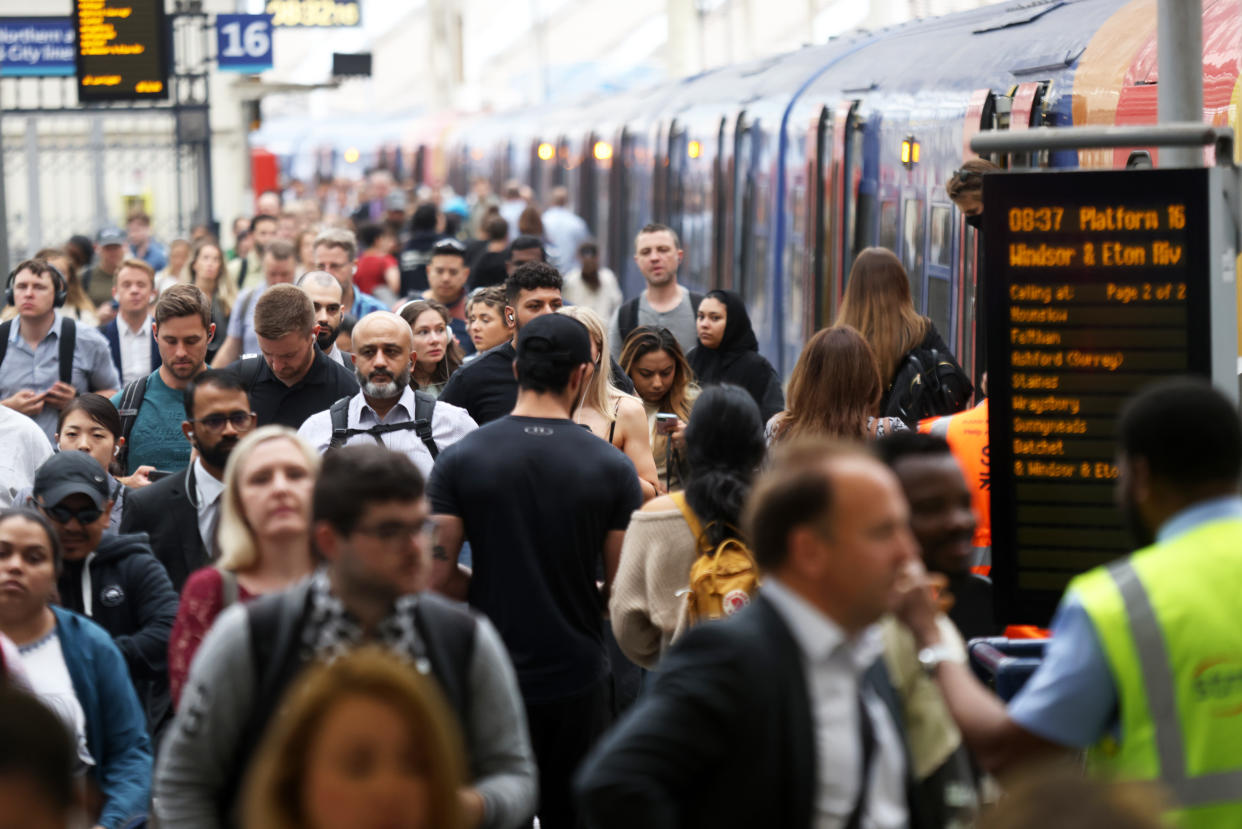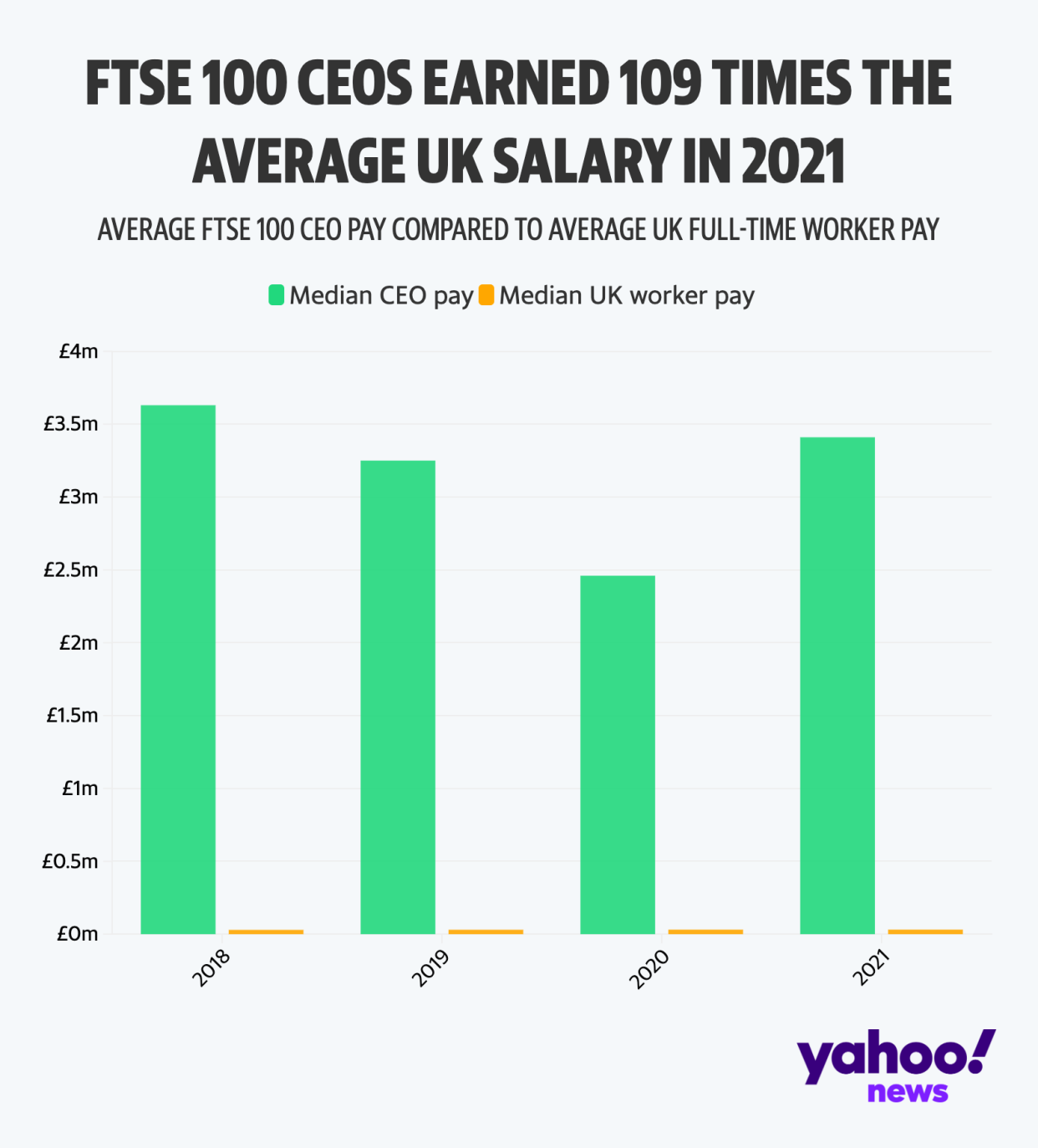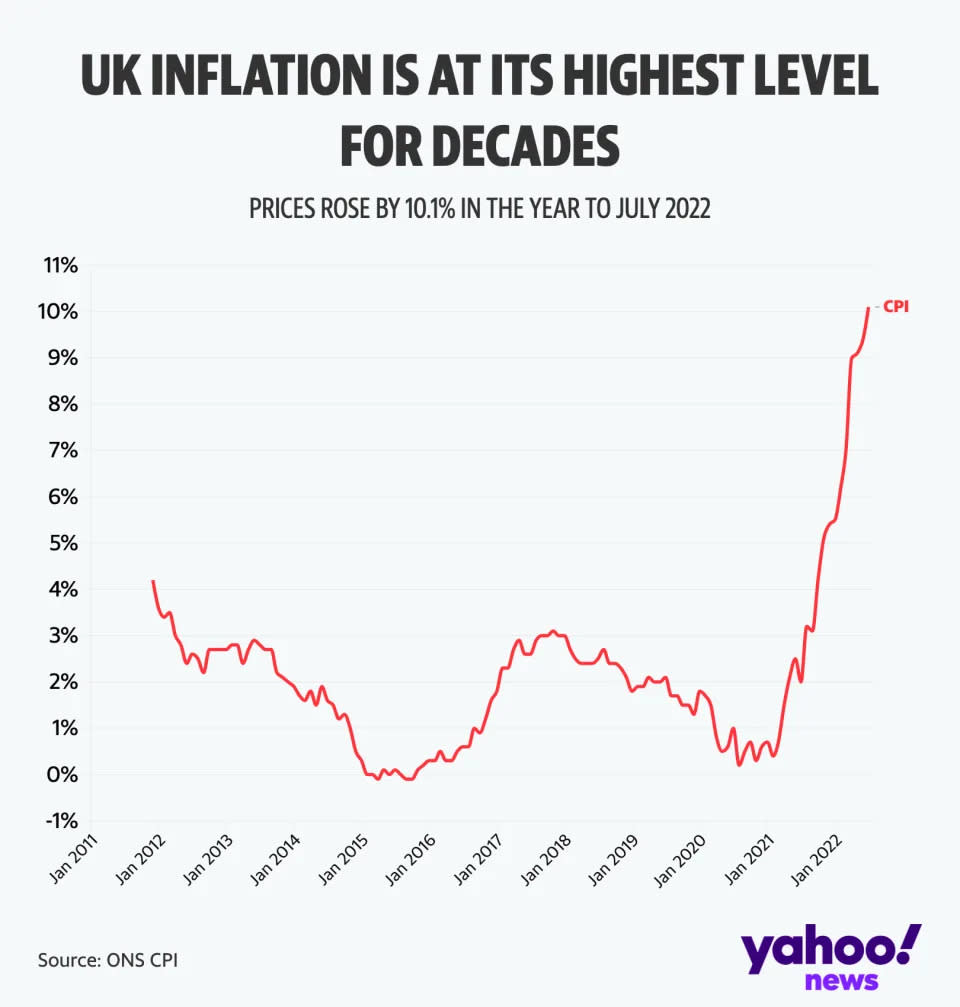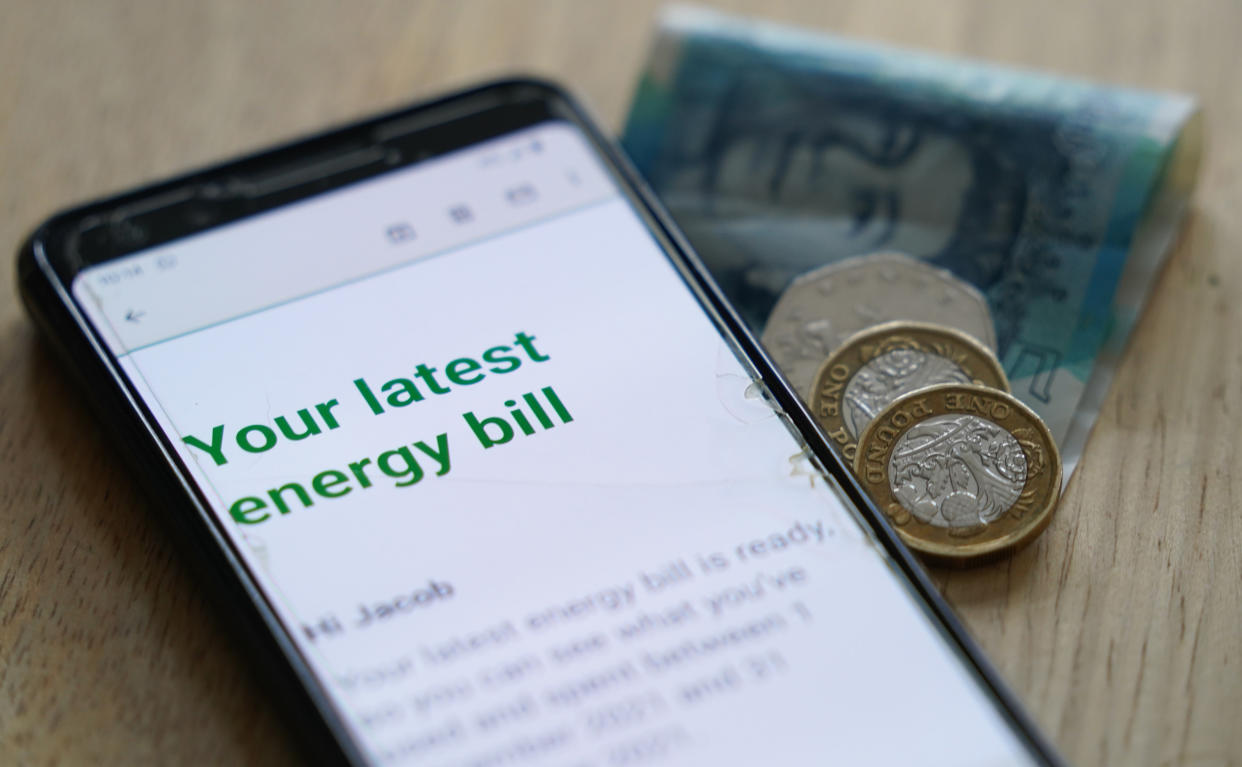The chart that shows the gulf between what CEOs and workers are paid

The vast gap between what CEOs earn compared to average workers increased last year after top bosses' pay rocketed by 39%, new research has revealed.
Figures from the High Pay Centre and TUC found FTSE 100 CEO pay increased from £2.46m in 2020 to £3.41m in 2021.
It means the median pay of a CEO is now 109 times that of a full-time average worker in the UK - an increase from 79 times in 2020.
The research found that CEO pay is now 5% than before the COVID-19 pandemic, rising from £3.25m in 2019.
In total FTSE 100 firms spent nearly three quarters of a billion on top bosses' pay, with £720.21m awarded to 224 executives.
Read more: UK workers see record drop in pay amid rising bills

Bonuses have also been on the rise for those at the top, with 90% of CEOs receiving an annual bonus of an average of £1.4m - compared to £828k in 2020 and £1.1m in 2019.
Currently the highest paid CEO in the FTSE 100 is Sebastien De Montessus of the Endeavour Mining Corporation, one of the world's largest gold producers.
He is paid £16.85m, overtaking last year's last year’s highest paid CEO, Pascal Soriot of AstraZeneca.
Soriot was paid £13.86m to lead the pharmaceutical company.
Recent figures by the Office for National Statistics found that regular pay of UK workers, excluding bonuses, fell an average of 3% in the three months to June when inflation is taken into account.
Household budgets have been hit by soaring energy bills as well as higher food and fuel costs in recent months.
Read more: 'Catastrophic': Inflation could hit 18.6% in January, experts warn

Official figures have shown that the only workers who have not seen a real terms cut to their pay in the previous 12 months are the richest 1% of earners.
Data from the Office for National Statistics (ONS) on Wednesday revealed that consumer prices index inflation (CPI) hit 10.1% last month.
Increases in the cost of essentials like food and basic toiletries are partly behind the increases, the ONS has said.
The bulk of inflation is being driven by energy bills.

A forecast from Citigroup revealed on Monday UK inflation could hit 18.6% in January, the highest in almost half a century.
The investment bank warned that the energy price cap – which puts a maximum price on the amount energy companies can charge per unit of energy used – will hit £4,567 in January and then £5,816 in April, driving inflation even higher than previously predicted, the Financial Times reported.
Experts have warned this level of price rises would be "catastrophic" for families' budgets.
Read more: UK’s richest 1% of earners are only group not to see real pay cut
However, rising inflation is not affecting all households equally.
Analysis from the Institute for Fiscal Studies (IFS) has found the poorest 20% are facing inflation of 17.6% by October.
In contrast, the richest 20% are facing inflation of 10.9%.


